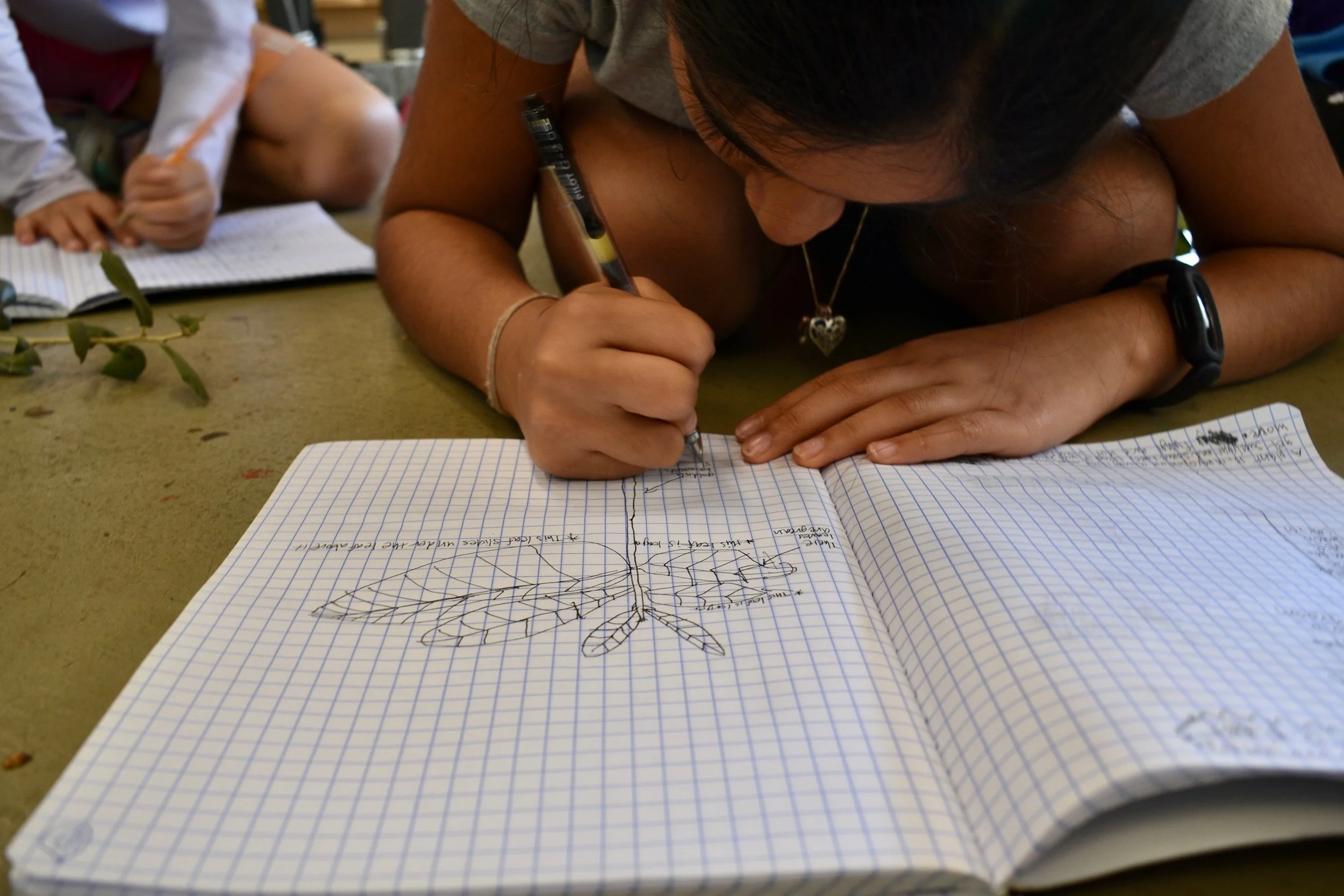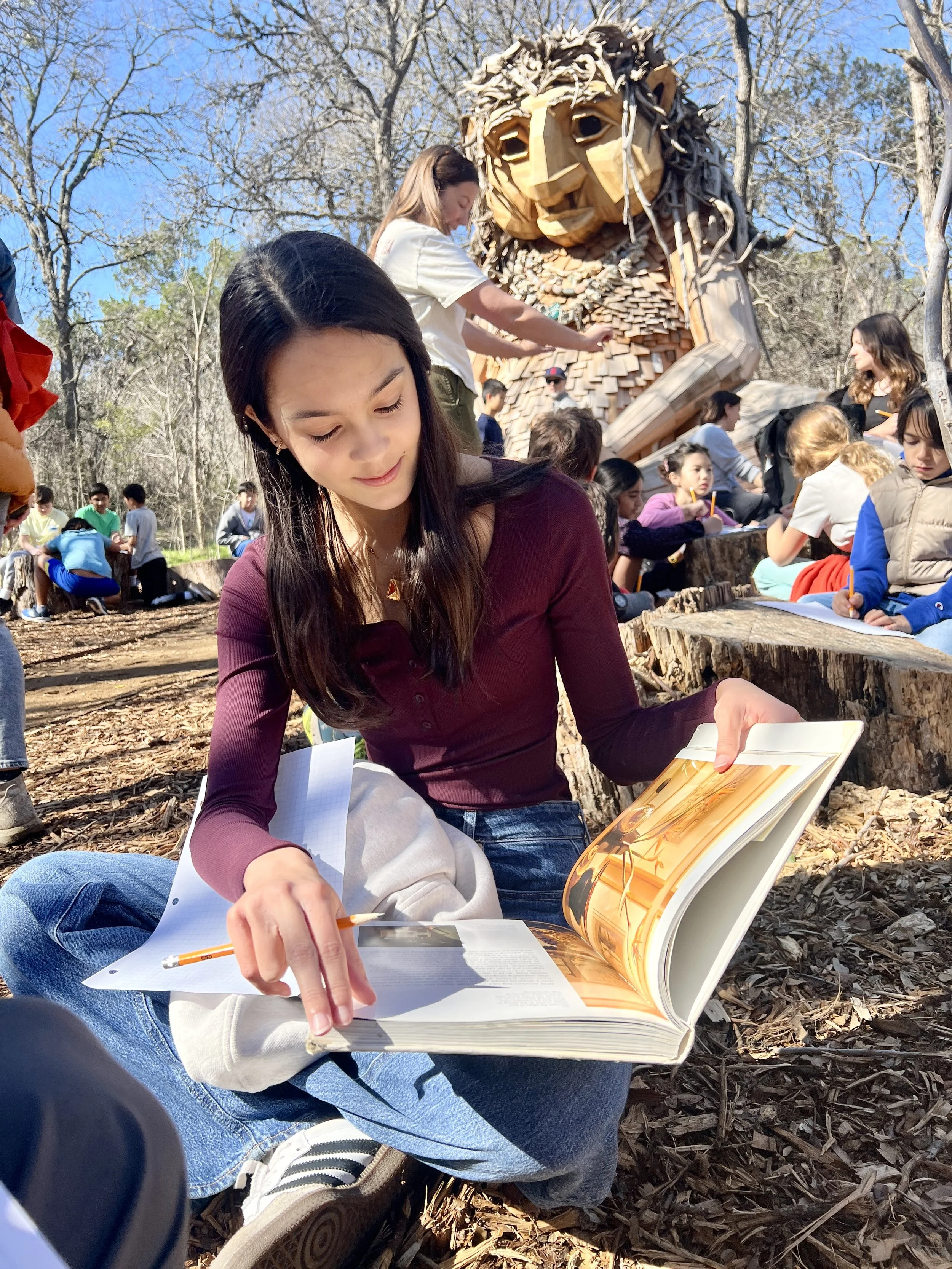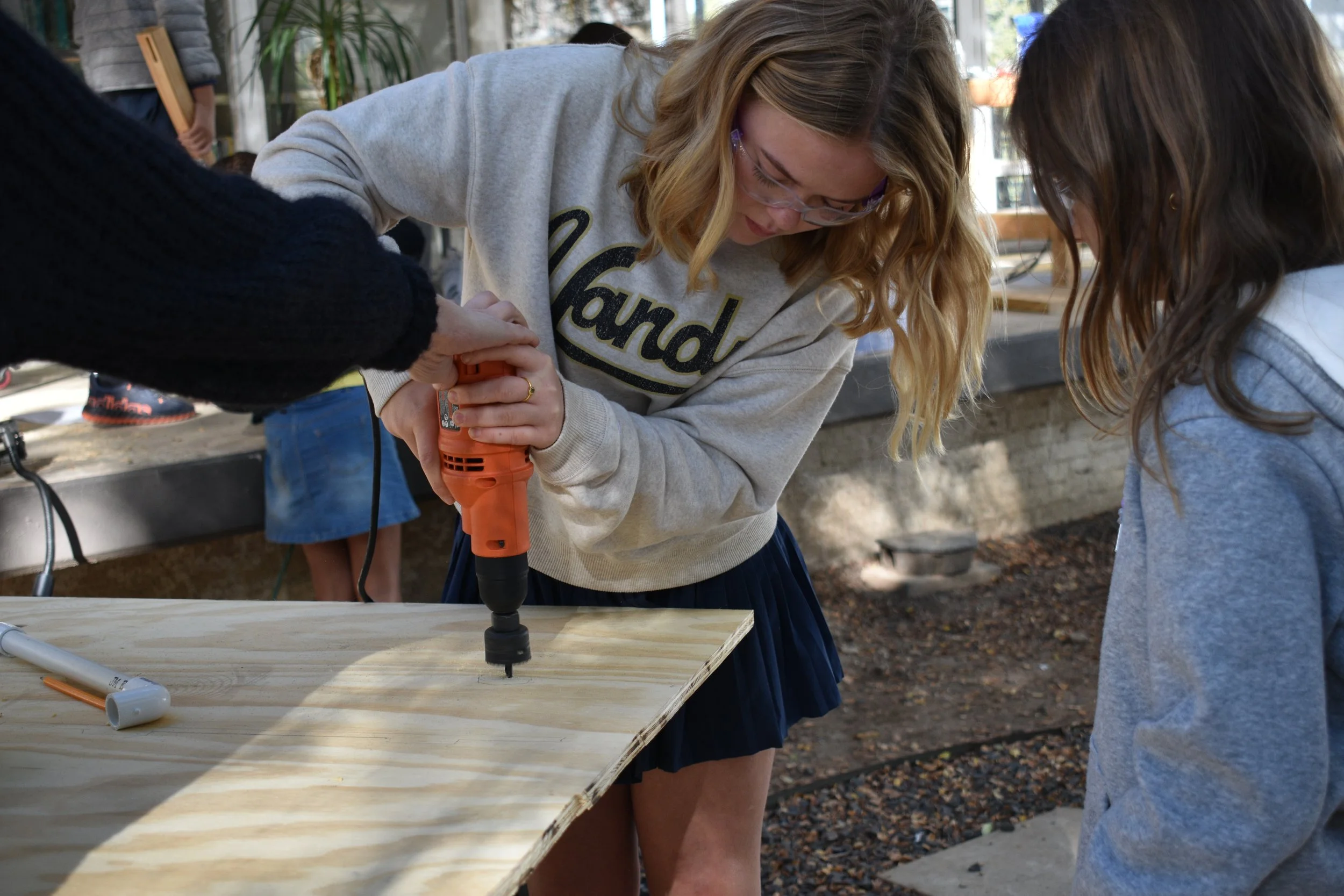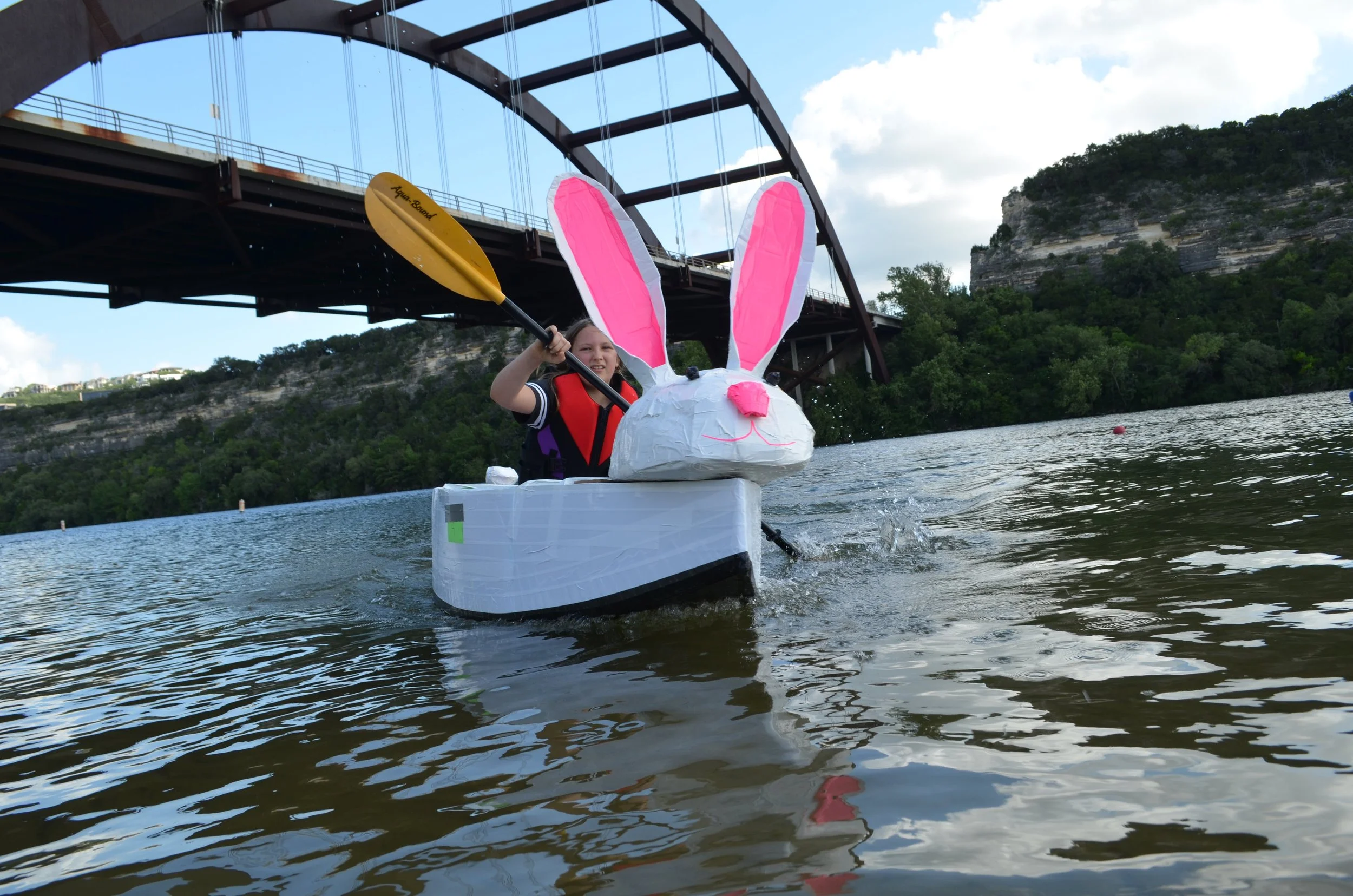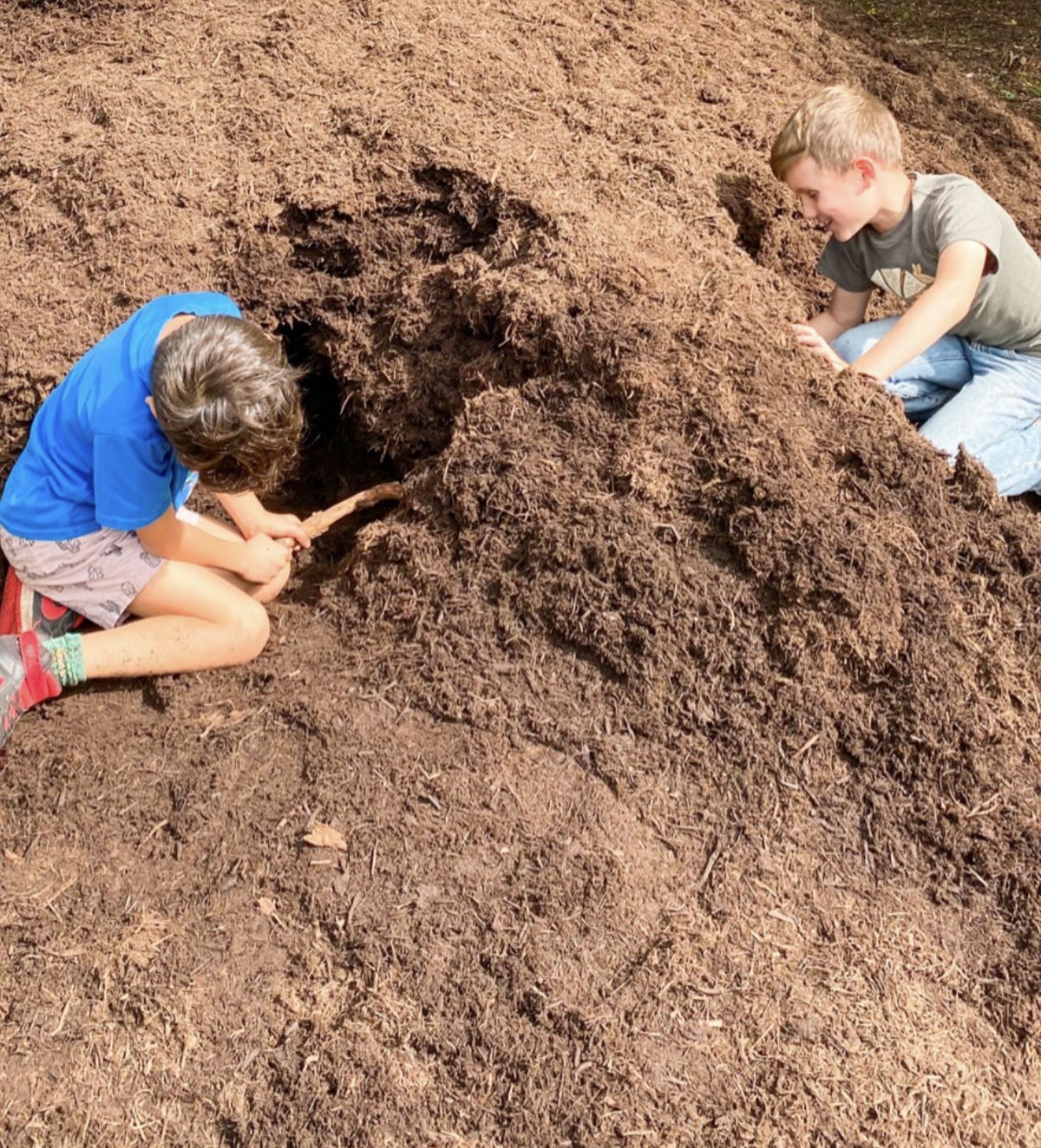Last spring, we were thrilled to make our first visit to Pease Park’s newest (and largest) resident: Malin, the troll. Designed and built by artist Thomas Dambo, primarily from reused and upcycled materials, Malin joins over 150 other trolls created by Dambo, his team, and local volunteers for locations around the world.
Pease Park occupies a special place in our hearts at Long-View. Every school day, we walk there for lunch and an hour of play, and often for special projects like nature writing or ecology studies. We were commissioned by Pease Park Conservancy to help Malin prepare for her 1st birthday party, and Build Week 19 was born! We were eager to help our beloved park by designating a week to build a set of colossal, upcycled decorations….
Read More
